Moving Towards a Collective Intelligence
“The physician should convert or insert wisdom into medicine and medicine to wisdom.”
(Hippocrates, physician, 460 BC – 370 BC).
Modern medicine is based upon the work of Hippocrates and his disciples and is compiled in more than 70 books comprising the Hippocratic body of work.1 In its essence, these writings declare that any illness originates with natural causes. Therefore, medicine must be based on detailed observation, reason, and experience in order to establish a diagnosis, prognosis, and treatment. The Hippocratic tradition stresses the importance of the symptoms and the clinical exam. As a result, medicine abandoned superstition and the magic performed by priest-doctors, and it was transformed into a real, experience-based science.
Hippocrates developed a methodology to train doctors’ “six sense.”2 Thanks to this new empirical method, physicians of ancient times began to use their intellect and five senses in order to gather information about their patients. The first stage of good medical attention begins, according to Hippocrates, with the “anamnesis,” a process that entails asking the patient and his/her family members specific questions. In a second stage, the physical examination is performed using inspection, palpitation, percussion, and auscultation techniques. In parallel, the method recommends meticulous attention to each specific detail, such as diet, fever, urine, feces, and sweat.

The Hippocratic oath continues to be the fundamental principle of medical ethics. Image: Wikimedia.In the Hippocratic tradition, the ability to diagnose, predict, and treat specific diseases stemmed from a combination of solid scientific knowledge and being able to intuitively perceive the patient in his/her entirety. Hippocrates said that physicians treat patients, not diseases;2 he believed every doctor should view the patient as a unique physical, mental, and spiritual being. Knowing and understanding the illness alone is not enough without a similar level of knowledge about the patient. The concept called “the art of medicine” is conceived here.
Augmented intellect for physicians
Doctors in today’s world continue to use the same methodology described by Hippocrates over two thousand years ago, but they also have access to new, vast, and valuable sources of information. In fact, laboratory tests, imaging, DNA sequencing, molecular pathology, and the technological advances of hyper-connectivity, allow for the analysis of new individual health characteristics. It is calculated that these new technologies produce close to a zettabit (1 billion gigabytes) of data per year, and they will generate even more in the future.3 It proves impossible for doctors to process all this information and glean useful knowledge from it. As a result, and to the detriment of the old Hippocratic method, increasingly doctors are trying to “ultra-specialize” in a specific branch of medicine.4 The ancient mix of knowledge and wisdom is being lost: technology dominates over the “art” and physical facts over the human.4 It is difficult to discern if we are treating people or diseases.
Until now, there weren’t the necessary tools to analyze and produce meaningful knowledge out of this massive amount of data. But with artificial intelligence (AI), this is changing at a dizzying speed. AI-powered systems can now process huge amounts of data, generating information that facilitates the creation of new knowledge. AI, however, instills fear and gives rise to all sorts of apocalyptic predictions because of a common belief that machines will replace humans in a number of jobs.5 On the contrary, in the field of medicine, artificial intelligence should be viewed as a tool that can improve medical work. The term “augmented intelligence” proves to be more appropriate to describe the true role of AI, given that this technology is designed to improve human intelligence, not supplant it.6
How can artificial intelligence contribute to doctors’ being more efficient in the care they give their patients? To answer this question, an understanding of how these systems work is first needed. Basically, it is a question of algorithms based on mathematical models, capable of processing huge amounts of data. The algorithms learn from the data, discern relevant patterns, and generate new information and knowledge that the human mind is not able to produce. In the field of medicine, doctors can apply this new knowledge to specific patient issues. On the other hand, AI cannot create wisdom, which is nothing else than the correct way of using the knowledge gained; for example, AI cannot assess the context or take into account the numerous subjective factors that impact a person’s health, factors like lifestyle and family relationships and friends. This is why AI cannot replace a doctor’s professional opinion.7
A more personalized medicine thanks to machines
There is a common debate about AI that is normally expressed as a “machines against humans” conflict, raising all types of pessimistic visions about the future of some professions (including the medical profession).5 This debate appears biased and Manichean. The advent of AI in medicine should be viewed rather as a paradigm shift, where medicine will evolve in a collaborative work environment, where machines and humans interact for medical decision making. In those cases where these decisions can be clearly defined with an algorithm, it would be logical to think that computers would replace humans. This should not imply that doctors will perish; very much on the contrary, these doctors will have more time to perfect the “art of medicine.” For example, if automated systems can use routine imaging to reach a diagnosis, doctors will be able to spend more time interacting with their patients, analyzing more complex situations, and deciding the course of action to follow.

AI will save time for doctors and health workers so they can spend it on the more human aspects of the profession. Image: Pixabay
As Hippocrates stated, different patients have different needs, and humans can better respond to these needs. What is known as human “common sense” can identify and respond to anomalous scenarios where the rules that normally characterize a specific condition don’t apply.7 For example, an experienced physician knows that patients can have very different subjective perceptions about the seriousness of their symptoms and level of pain; it is impossible for computers to pinpoint these differences.8
Automation will be a threat to those doctors who only focus on processing information and assimilating medical data. On the other hand, those doctors with strong emotional skills (creativity, empathy, compassion) and who can listen and pay attention to their patients, thus practicing with medical wisdom, will not be replaced.
Conclusion
A complementary combination of both intelligences (human and artificial) could help overcome the other’s shortcomings and limitations. As we incorporate intelligent technologies into medical processes, a new, more powerful form of collaboration will emerge.9 Analogous to the past when the automation of human tasks completely changed the known world and ignited an evolution in the offering of products and services, the combination of human and artificial intelligence will create a new type of collective intelligence capable of building more efficient organizations, and in the healthcare industry, it will be able to solve problems that until now have been unfathomable to the human mind alone.
Finally, it is worth remembering that fact based sciences are divided into natural and human disciplines. Medicine occupies a special place, straddling both. It can be difficult to establish the similarities between a doctor who works, for example, with rules defined by specific clinical trials and a traditional family practitioner. The former would be more related to a natural science, and the latter with a more human science – “the art of medicine.”
The combination of human and artificial intelligence in a new type of collective intelligence will enable doctors themselves to be a combination of the two. In other words, the art of medicine – human science – based on the analysis of big data – natural science. A new collective intelligence working on behalf of a wiser medicine.
Carlos María Galmarini
References
- Iniesta I. Hippocratic Corpus. British Medical Journal 342:d688, 2011.
- Hippocrates. Aphorisms. 400BC. http://classics.mit.edu/Hippocrates/aphorisms.html
- Raghupathi W et al. Big data analytics in healthcare: promise and potential. Health Information Science and Systems 2:3-13, 2014.
- Jauhar S. Doctored: The Disillusionment of an American Physician. Publisher: Farrar, Straus and Giroux; 1st edition, 2014.
- Harari YN. Homo Deus: A Brief History of Tomorrow. Publisher: Harvill Secker; 1st edition, 2016
- Augmented Intelligence: Smart Systems and the Future of Work and Learning. Editor: Araya D. Publisher: Peter Lang Inc., International Academic Publishers; 2nd edition, 2018.
- Vogel L. Gut feelings, a strong influence on physician decisions. CMAJ 190:E998-E999, 2018.
- Parikh R. AI can’t replace doctors. But it can make them better. MIT Technology Review. October, 2018.
- Malone TW. Superminds. Publisher: Little, Brown and Company 1st edition, 2018.
– – –
Read original publication: https://www.bbvaopenmind.com/en/technology/artificial-intelligence/from-hippocrates-to-artificial-intelligence-moving-towards-a-collective-intelligence/





